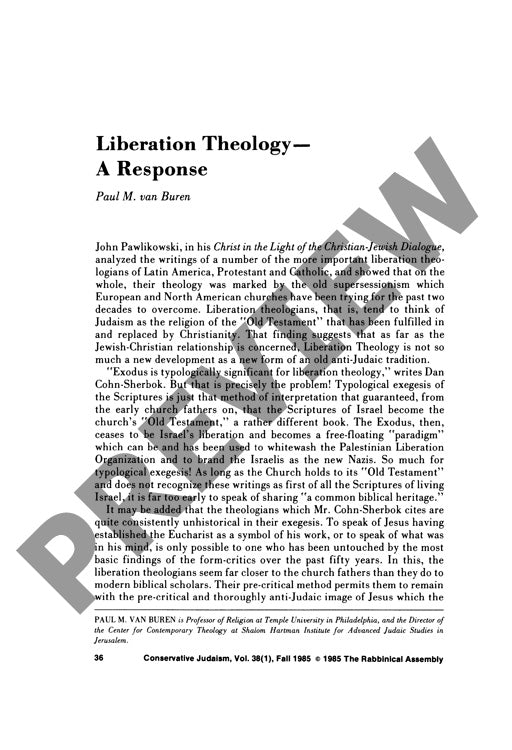Liberation Theology a Response
Couldn't load pickup availability
Despite its revolutionary stance against oppression, Liberation Theology perpetuates problematic anti-Judaic interpretations that hinder meaningful Jewish-Christian dialogue. A critical analysis of liberation theologians' writings reveals their continued adherence to supersessionist traditions that frame Judaism as merely Christianity's obsolete predecessor. By examining typological interpretations of biblical texts, particularly the Exodus narrative, the research uncovers how liberation theologians employ pre-critical exegetical methods reminiscent of early church fathers. These methods transform Jewish scriptures into Christian "Old Testament" paradigms, reinforcing centuries-old theological biases. The roots of this interpretive problem trace back to first-century Gospel writers and editors who, writing amid post-Temple destruction tensions, obscured Jesus's Jewish identity through anti-Judaic overlays. While Liberation Theology marks a vital theological development in addressing social justice, it requires fundamental revisions to eliminate embedded anti-Judaism. Moving forward, addressing Christological barriers through critical historical reconstruction of first-century contexts offers a path toward authentic interfaith cooperation in pursuing shared social justice goals.

More Information
-
Physical Description
-
Publication Information
Published 1985
ISBN
-
Publication Credits
Paul Van Buren

